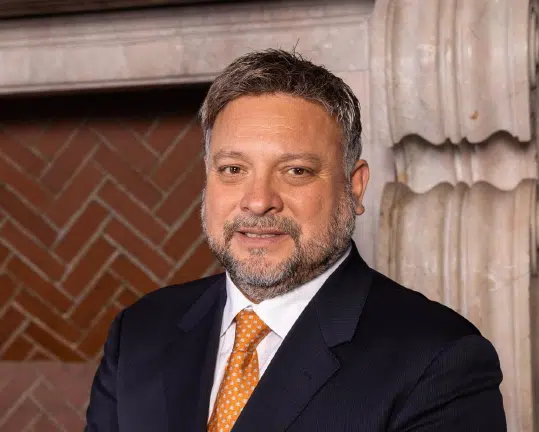By David Steinkraus
After over 30 years in the Chicago restaurant industry, Sam Sánchez is pursuing a new venture by setting up a solar-panel manufacturing factory in Puerto Rico.
The island still suffers the aftereffects of Hurricane María, which came ashore on Sept. 20, 2017, as a Category 4 storm and the tenth most powerful Atlantic hurricane on record, and destroyed the island’s power grid.
Sánchez hopes to work with Puerto Ricans to build solar energy solutions through his new company, Great Lakes Solex PR. In January or February, the company will start renovation of an old factory to create the first phase of a plant to assemble solar panels from components brought to the island. Production should start in September, he said.
Minority first
Great Lakes Solex PR will be the first minority-owned solar panel manufacturer in the country, Sánchez said. And it wouldn’t have happened without tariffs imposed on Chinese-made panels and tax breaks for solar panel manufacture included in President Joe Biden’s Inflation Reduction Act.
Sánchez said he originally planned to build a factory in southern Illinois. But as he researched what was possible, he said, he found incentives available in Puerto Rico were better: up to a 40% tax break on manufacturing and construction, plus up to seven months of payroll cost for each new employee training.
“We went to the north side of the island. Hurricanes always hit on the south end,” Sánchez said.
In the town of Aguadilla, on the northwestern coast and about a two-hour drive from the main city of San Juan, he and his team found a 138,000-square-foot building that had been used by Hewlett Packard. It’s just the right size for a factory producing 800 megawatts to 1 gigawatt of panels, Sánchez said.
The factory will run 24 hours a day, seven days a week, and will create 430 jobs, he said. And it will use its own solar panels for carbon-reduced operation, he said. He said that Great Lakes Solex will create proprietary panels and panels for existing brands. It will produce residential solar panels of 450 watts each and commercial solar panels of 650 watts each.
Sánchez’s partner in this venture is Luxen Solar. Founded in Spain in 2005, Luxen has its operational headquarters in Vienna, distributes in 90 countries, and has produced more than 7 gigawatts of panels at its production facility in China.
Following a thread
Sánchez started his restaurant company, Third Coast Hospitality, in 1992. You may recognize some of his properties: Moe’s Cantina, Tree House Chicago, Old Crow Smokehouse, and Tunnel. His daughters Korina and Samantha took over daily operations in 2021, but Sánchez still consults and still owns EMC Construction which builds and remodels spaces for restaurants.
“I was always interested in manufacturing when I was a kid,” he said. “Things happen. You kind of run into some ideas and take the opportunity you find.”
Sánchez grew up in Sabinas Hidalgo, Mexico, and what he ran into was an idea that grew from visiting his father, who has a ranch in northern Mexico. A decade-long drought forced his father to dig deeper wells. “Every time you dig a deep well, you have to run power, and then you might run out of water in six months,” Sánchez said.
The solution was solar. A group of 16 panels provided enough electricity to run a pump, and it was portable; if a well dried up, the pump system could be easily moved to the site of another well, Sánchez said. And sunshine is free. Pull on that idea thread, he said, and you end at Great Lakes Solex PR.
Sánchez envisions two more phases for the Puerto Rico factory. The $220 million phase two will expand production to 3 gigawatts by the end of 2025. Phase three will expand the company’s output to 6 gigawatts. “Our goal is to create great jobs for engineers and line people so that it will be the new middle-class income,” he said.
He said he and his team have met twice with U.S. Energy Secretary Jennifer Granholm. But the key to the rapid realization of his plan was networking, he said, at first through the Illinois Hispanic Chamber of Commerce, which then brought in the United States Hispanic Chamber of Commerce. “If it wasn’t for the chamber of commerce, it would have been very hard for me to network as fast as I did,” Sánchez said.











